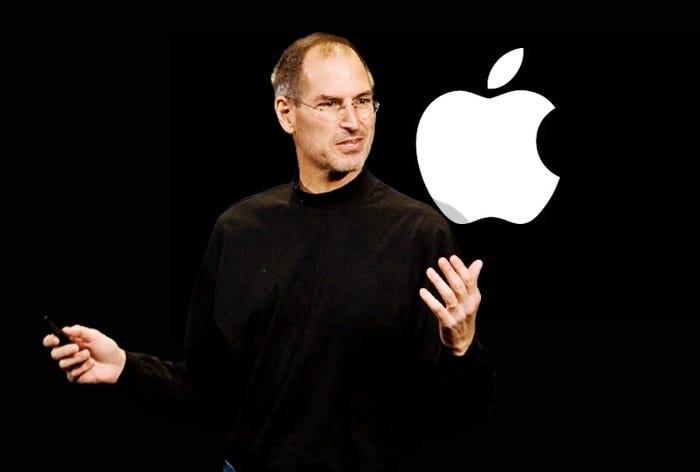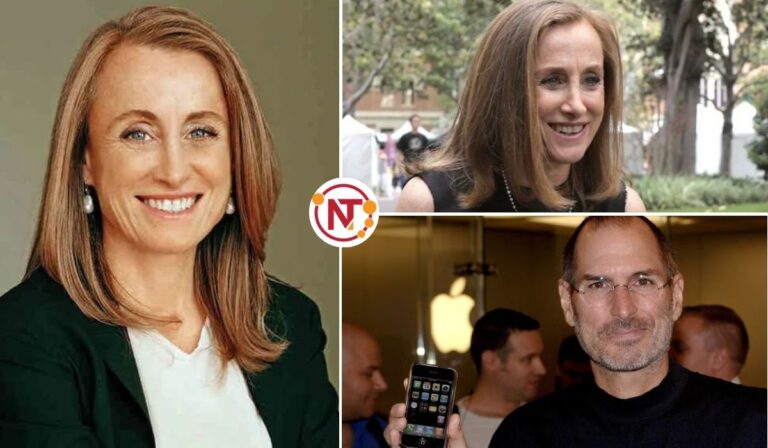Introduction
When people think of Steve Jobs, words like visionary, innovator, and Apple co-founder immediately come to mind. Yet few pause to consider the quiet yet pivotal role played by his biological mother, Joanne Schieble. Her choices, shaped by social norms and personal struggles of her time, helped define the course of tech history. This article offers an in-depth look at Joanne Schieble’s life, her family background, her connection to Steve Jobs, and the remarkable legacy that ripples far beyond Silicon Valley.
Quick Bio Table: Joanne Schieble (Joanne Carole Schieble)
| Data Point | Details |
|---|---|
| Full Name | Joanne Carole Schieble |
| Birth Year | 1932 |
| Birthplace | Wisconsin, United States |
| Ethnicity | German and Swiss descent |
| Education | University of Wisconsin |
| Known For | Biological mother of Steve Jobs |
| Partner at time of Steve’s birth | Abdulfattah Jandali |
| Child given up for adoption | Steve Jobs (1955) |
| Later Marriage | George Simpson |
| Other Children | Mona Simpson |
| Notable Fact | Reunited with Steve Jobs decades later |
| Legacy | Her early decisions shaped the life of one of tech’s greatest figures |

Born in 1932 in Wisconsin to parents of German and Swiss heritage, Joanne Carole Schieble grew up during the Great Depression and World War II. Her upbringing reflected the era’s strict cultural norms, emphasizing family honor, education, and conformity. Those expectations would profoundly affect the decisions she made as a young woman.
During her college years at the University of Wisconsin, Joanne stood out for her intelligence and independent spirit. It was there she met Abdulfattah Jandali, a Syrian graduate student—a relationship that would challenge her family’s conservative beliefs and ultimately lead to one of the most influential adoption stories in history.
Love, Society, and Difficult Choices
In the early 1950s, America was still steeped in conservative values about race, religion, and family. Joanne’s relationship with Abdulfattah faced sharp disapproval from her Catholic father. Despite their shared dreams, societal and familial pressures forced Joanne into an impossible position when she became pregnant in 1954.
At the time, unwed motherhood was stigmatized, often leading to lifelong social exile. To avoid scandal, Joanne traveled to San Francisco and secretly gave birth to a son—Steven Paul Jobs—on February 24, 1955. The baby was placed for adoption under the condition that his adoptive parents be college-educated, though circumstances later changed that plan.
PEOPLE ALSO READ : Who Was Sandra Janowski? The Untold Story of Ted Nugent’s First Wife
The Adoption That Changed Tech History
Paul and Clara Jobs, a working-class couple from Mountain View, California, eventually adopted Steve. Despite not meeting the college-educated requirement, Joanne reluctantly agreed after learning of their strong desire to become parents.
Steve Jobs later described feeling deeply grateful for his adoptive parents, calling Paul and Clara his “real” parents. Yet the decision made by Joanne Schieble—painful and courageous—set the stage for the creation of one of the most revolutionary companies of the 20th century: Apple.
Life Beyond Steve Jobs: Marriage and Family
After Steve’s adoption, Joanne’s life took a different turn. She eventually married George Simpson, an American political scientist, and they had a daughter, Mona Simpson, born in 1957. Mona would grow up to become an acclaimed novelist, adding another creative force to the family’s legacy.
Interestingly, Steve Jobs and Mona Simpson didn’t meet until adulthood. When they finally connected, the bond between the siblings grew strong, shaped by shared curiosity about their biological roots and the quiet strength of the woman who gave them life.
Joanne Schieble’s Legacy in Tech History

Joanne Schieble never worked in Silicon Valley, wrote code, or ran a company. Yet her influence is etched deeply in the history of technology. By giving birth to Steve Jobs—and making the agonizing decision to place him for adoption—she indirectly set in motion the creation of products that would transform how billions interact with technology.
Steve’s fascination with design, minimalism, and perfectionism can be traced, some biographers believe, to the sense of loss and search for identity rooted in his early family story. Joanne’s decision shaped not only his character but also the boldness with which he approached innovation.
Little-Known Facts About Joanne Schieble
Though rarely in the spotlight, Joanne Schieble’s life is full of intriguing details:
-
She maintained contact with Steve Jobs later in life, rebuilding their relationship quietly and privately.
-
Her daughter, Mona Simpson, based a character partly on Joanne in her novel Anywhere but Here.
-
Joanne shared an intellectual streak, encouraging creativity and independent thinking in both her children.
-
Despite family challenges, she lived to see Steve Jobs’ rise as a cultural icon.
-
She kept her privacy fiercely, rarely speaking publicly about Steve.
These elements paint a portrait of a woman whose choices, though painful, were driven by love and shaped by the era she lived in.
Steve Jobs’ Complex Relationship with His Birth Mother
For Steve Jobs, learning about his biological family sparked a lifelong exploration of identity. Though adopted by loving parents, Steve’s meeting with Joanne Schieble and Mona Simpson offered closure and deeper self-understanding.
Biographers note that Steve’s reunion with Joanne helped soften some of his famously sharp edges, reminding him of the human stories behind even the most successful lives. Joanne, in turn, gained the chance to see the child she once had to let go of become one of history’s greatest innovators.
Joanne Schieble’s Quiet Strength and Private Life
After her reunion with Steve Jobs, Joanne Schieble chose to remain largely out of the public spotlight. Unlike many parents of famous figures, she never capitalized on her son’s fame, preferring instead a life marked by reflection and privacy. Friends and family describe her as warm yet reserved—a woman shaped by both love and heartbreak. Her decision to live quietly stands as a testament to her character, showing that true influence doesn’t always need public acknowledgment to be profound.
Why Her Story Still Matters Today
The life of Joanne Schieble resonates far beyond her connection to Steve Jobs. It highlights how societal expectations can shape deeply personal choices, and how those choices can ripple across generations. For anyone tracing the roots of innovation, creativity, or resilience, her story offers a reminder that behind every extraordinary figure often stands someone whose quiet sacrifices made the impossible possible.
In remembering Joanne Schieble, we not only honor Steve Jobs’ beginnings but also recognize the quiet courage of a woman who helped change tech history without ever stepping onto the stage herself.
Broader Reflections on Family and Identity

The story of Joanne Schieble and Steve Jobs challenges our assumptions about family. It illustrates that identity is often shaped as much by loss and absence as by presence. For Steve, knowing his biological mother—and discovering his sister Mona—added complexity to his public persona.
In Silicon Valley, known for celebrating “self-made” legends, Steve’s story reveals how family, history, and even painful choices often play a hidden yet decisive role in shaping greatness.
PEOPLE ALSO READ : BarAPK Org Review: Why It’s the Top Choice for APK Downloads
The Role of Joanne Schieble in Cultural Memory
Although not a public figure, Joanne Schieble has become a symbol of resilience and quiet strength. Her life story resonates with themes of sacrifice, love, and the cost of societal expectations.
Today, historians and tech biographers acknowledge her as more than just “Steve Jobs’ biological mother.” She is remembered as a woman who navigated difficult choices, ultimately shaping the life of a man whose products reshaped modern communication, entertainment, and creativity.
Final Thoughts
Joanne Schieble’s story reminds us that behind every headline-making genius lies a tapestry of hidden struggles, sacrifices, and choices made by others. Her courage, shaped by love and constrained by the culture of her time, played an invisible yet powerful role in the birth of Apple and the rise of Steve Jobs.
While history rightly celebrates Steve’s achievements, it is equally important to recognize Joanne Schieble, whose quiet strength and painful decision changed not only her son’s destiny—but also the lives of millions worldwide who live in a world forever transformed by his vision.
📌 Frequently Asked Questions (FAQs)
1. Who was Joanne Schieble?
Joanne Schieble, later known as Joanne Simpson, was the biological mother of Apple co-founder Steve Jobs. Born in 1932, she was a graduate student who made the difficult choice to place her newborn son for adoption.
2. Did Steve Jobs ever meet Joanne Schieble?
Yes, Steve Jobs reunited with Joanne Schieble later in life. They developed a private relationship that offered both of them some measure of reconciliation and understanding.
3. Why did Joanne Schieble give Steve Jobs up for adoption?
Social pressures and family objections to her relationship with Steve’s biological father, Abdulfattah Jandali, led Joanne to place her child for adoption to ensure he had better opportunities.
4. Did Joanne Schieble have other children?
Yes, Joanne married George Simpson and had a daughter, Mona Simpson, who later became a well-known novelist. Steve Jobs and Mona discovered each other as adults.
5. What was Joanne Schieble’s influence on Steve Jobs?
While she did not raise him, biographers suggest Joanne’s story deeply affected Steve’s sense of identity and search for belonging, indirectly shaping his creative drive.
6. What ethnicity was Joanne Schieble?
She was of German and Swiss descent, born and raised in the United States.
7. Is Joanne Schieble still alive?
As of recent public records, Joanne Schieble is no longer in the public eye and has lived a largely private life following her son’s passing in 2011.


